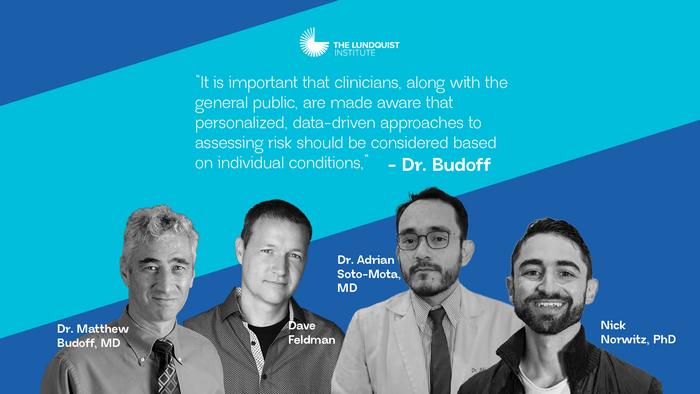In a groundbreaking study published in the Journal of the American College of Cardiology: Advances, researchers at The Lundquist Institute for Biomedical Innovation at Harbor-UCLA Medical Center have brought new insights into the relationship between cholesterol levels and coronary artery disease. This study contradicts the well-entrenched lipid hypothesis, which has long asserted that elevated levels of low-density lipoprotein cholesterol (LDL-C) and apolipoprotein B (ApoB) are significant risk indicators for heart disease. The research particularly focuses on a unique subset of the population known as Lean Mass Hyper-Responders (LMHRs), who, while maintaining a ketogenic lifestyle, present high cholesterol levels yet demonstrate metabolic health.
The investigation centered on 100 metabolically healthy individuals adhering to a long-term low-carbohydrate ketogenic diet. This particular diet is known for inducing elevated LDL cholesterol levels as a physiological response to sustained carbohydrate restriction. Surprisingly, despite these elevated cholesterol levels, the study revealed that traditional markers, such as ApoB and LDL-C, did not correlate with either baseline coronary artery disease or its progression in this unique demographic.
Interestingly, the findings suggest that rather than cholesterol itself, the pre-existing burden of plaque in coronary arteries serves as the most valid predictor of future plaque progression. This finding raises critical questions about the reliance on conventional cholesterol markers in evaluating cardiovascular health, particularly in those who adopt dietary regimens aimed at improving various health conditions.
The lipid hypothesis has dominated cardiovascular risk assessment for decades, with a standard practice that places significant emphasis on lowering cholesterol as a means of mitigating heart disease risk. However, as evidence mounts regarding the metabolic impacts of ketogenic diets—often employed for a range of chronic health conditions—researchers stress the importance of reassessing the traditional metrics used for evaluating cardiovascular risk, particularly for individuals categorized as LMHRs.
Advanced imaging techniques were pivotal in this research, as the study utilized non-invasive CT angiography to explore the relationship between elevated cholesterol levels and plaque progression. The results highlighted a crucial distinction: individuals classified as LMHRs exhibited high LDL-C and ApoB levels, yet they maintained otherwise healthy metabolic markers such as low triglycerides, high HDL, and low insulin resistance. The lack of correlation between such cholesterol markers and plaque progression points to the necessity for a more nuanced understanding of cardiovascular health.
Importantly, the research team, which includes prominent figures such as senior author Dr. Matthew Budoff, emphasizes the need for personalized and data-driven approaches to cardiovascular risk assessment. In light of their findings, it becomes clear that clinicians should consider not only cholesterol levels but also individual characteristics and risk factors when evaluating heart disease risk. The perception that high cholesterol invariably leads to heart disease may not apply uniformly across all populations, especially for those who are LMHRs.
Moreover, as therapeutic carb-reduction becomes increasingly recognized for its health benefits, the study highlights the pressing need for doctors to understand and differentiate between the various phenotypes associated with high cholesterol. The potential health implications of these findings are vast. They suggest a shift away from blanket recommendations to lower cholesterol in all patients, particularly those adopting ketogenic or low-carbohydrate diets with favorable metabolic effects.
Additionally, the research indicates a significant opportunity for employing cardiac imaging as a proactive measure in assessing cardiovascular risk in LMHR individuals. This could lead to more timely interventions that are better suited for the metabolic needs of these patients. Coupled with advancements in personalized medicine, the future of cardiovascular health assessments may pivot towards integrating more comprehensive and individualized testing modalities.
Over the years, concerns associated with ketogenic diets have often focused on their purported risks, primarily revolving around cholesterol and cardiovascular health. However, this study stands as a pivotal contribution to understanding that the metabolic context, in which high cholesterol levels occur, matters significantly. As the medical community moves toward a more collaborative and open-minded interpretation of dietary impacts on cardiovascular risk, this research serves to advocate for evolving best practices and treatment protocols.
The broader implications of this late-stage research and its findings underline the necessity for continued investigation into how dietary-induced cholesterol changes interact with physical health parameters. As the conversation about cardiovascular health evolves, it is evident that older paradigms must be reassessed in favor of more nuanced, evidence-based recommendations that align with individual patient profiles. The implications of this shift could profoundly influence the way lifestyle interventions are viewed by healthcare providers.
As awareness increases about the variability of responses to dietary changes, it becomes crucial that further research explores the intersection of diet, cholesterol, and coronary health. Only through rigorous examination and open dialogue can definitive conclusions be drawn about the complexities of cardiovascular disease risk in populations classified as metabolically healthy despite high cholesterol levels.
The study concludes by calling for a broader, multidisciplinary approach to understand and effectively manage the cardiovascular health of LMHR individuals—strengthening ties between researchers, clinicians, and patients. As further inquiries into this area unfold, the medical community stands poised to redefine strategies and practices related to cardiovascular disease risk management.
Subject of Research: The relationship between cholesterol levels and coronary artery disease in individuals following a low-carbohydrate ketogenic diet.
Article Title: Plaque Begets Plaque, ApoB Does Not: Longitudinal Data From the KETO-CTA Trial
News Publication Date: April 7, 2025
Web References: Journal of the American College of Cardiology
References:
Image Credits: The Baszucki Group
Keywords: Cholesterol, Cardiovascular Health, Ketogenic Diet, Metabolic Health, Lean Mass Hyper-Responders, ApoB, LDL-C, Personalized Medicine, Dietary Interventions, Chronic Disease Management, Risk Assessment, Advanced Cardiac Imaging.




